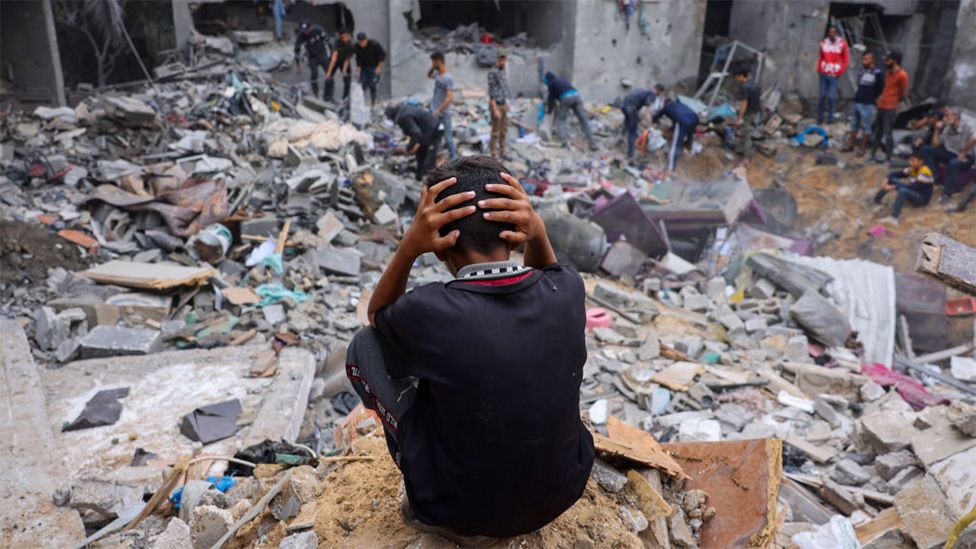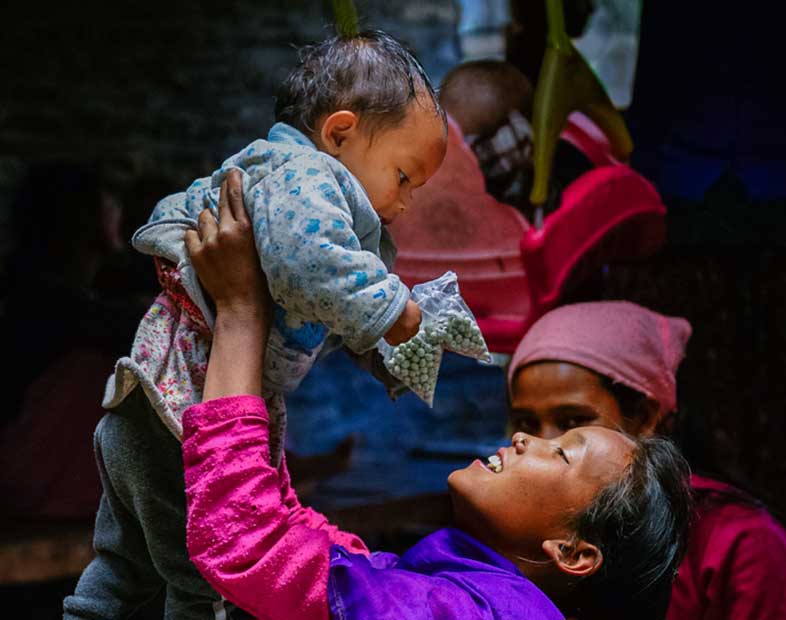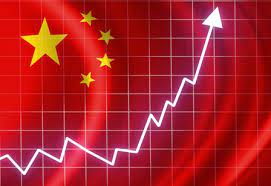The 24th of February marks the second anniversary of the Russian invasion of Ukraine. In addition to the terrible human losses and the increased security desrabilisation in Europe, the ongoing conflict has undermined the European Union’s main energy supply. The unpreparedness that surfaced from the conflict highlighted the necessity to diversify the union’s energy suppliers. While energetic self-sufficiency would be preferable, the EU’s capacity to rely exclusively on its member states for energy supply remains a long-term objective, so an alternative is urgently needed in the interim.
This shift in supplier has been taken as an opportunity to transform European energy production methods to better align them with the European Green Deal, a vast plan aiming to make the union carbon neutral by 2050: three months after the start of the war, the REPowerEU plan was launched, a package combining the necessity to find alternative reliable energy sources to achieving the Green Deal.
North Africa has been widely considered as the new exporter, as it is among the most prolific territories for green energy production worldwide, and, crucially, Europe’s neighbour. However, a close inspection of the region reveals significant challenges associated with these projects. This article assesses the potential of expanded green energy agreements between Europe and North Africa under REPowerEU, pondering their benefits with their associated risks, and shows how, despite such risks, pursuing these deals remains worthwhile.
North Africa: abundant green energy within reach
The idea of utilising the valuable pool of energy just beyond the Mediterranean Sea is not new. Small green energy deals started flourishing between the beginning of the millennium and the 2008 financial crisis, at which point they came to a halt. In the past decade however, the scaling up of more efficient methods to capture both wind and solar energy at considerably more competitive prices has revitalised interest in the Southern Neighbourhood: the average price of utility-scale solar plants electricity declined from $0.45 per kilowatt hour in 2010 to 0.05$ in 2022. Currently, North Africa provides 10% of the EU’s total energy and over two-thirds of its natural gas. The first large-scale green energy export deal, the Green Partnership Agreement, was struck between the union and Morocco in 2022, and talks for similar projects are ongoing between Egypt and Greece, Tunisia, Italy and Malta, and more.
Two principal reasons make North Africa the perfect candidate to be the EU’s green energy supply: a high production potential, and its proximity to the importing party.
While countries such as Spain and Germany are expanding their green energy facilities to reach self-sufficiency, not every country in the union meets the geophysical and/or financial prerequisites for this growth, thus currently this effort cannot be reproduced union-wide. The Maghreb specifically is blessed by a worldwide rare combination of high solar radiation and high wind coming from the Atlantic Ocean, generating massive amounts of energy while allowing electrolysers to run almost non-stop. IRENA estimates North African installable capacities at 2,792 gigawatts for solar and 223 gigawatts for wind, surpassing Europe’s total electricity output in 2021 by more than 2.5 times.
North Africa’s position in respect to Europe also eases energy transportation as the supply chain of green hydrogen is shortened. The proximity of the production and processing infrastructure to the recipient countries reduces transport costs, improves oversight of value chains, and strengthens the latter’s resilience. Finally, forging new deals with North Africa presents the opportunity to strengthen enduring diplomatic ties between the EU and its neighbours, in addition to long-term development projects in the Maghreb and Egypt.
Security in the Southern Neighbourhood
Despite these priceless resources, tensions in the region and physical constraints of energy exportation are causing concerns in the EU around North Africa’s capability to function as a secure alternative to Russia.
Wind and solar energy are expected to be shipped abroad under the form of ammonia, or liquid hydrogen. Hydrogen demands temperatures of -253°C to maintain a liquid form, resulting in impractical transportation and exorbitant shipment costs. These constraints preclude the movement in containers of the quantity of ammonia needed to provide energy to the EU 27, making pipelines necessary for the scope. As shown by the sabotage of the Nord Stream Pipeline, rendered inoperable following a series of explosions in September 2022, pipelines are vulnerable in conflict areas, as energy supply can be made into a target or a weapon. While the former was the case for the Nord Stream, in November 2021 diplomatic tensions led Morocco to interrupt gas flows from Algeria to Spain, utilising gas flow to harm its opponent. Another similar threat to stability of energy flowing from North Africa is the contested territory of West-Sahara, currently mostly under Moroccan control but seeking independence. Potential energy from wind- and solar- rich Mauritania would have to cross this area, making it vulnerable to non-state groups attacks.
Financial investments and competition
The EU is not the only actor interested in the North African energy cornucopia. Since the announcement of its Belt and Road Initiative (BRI) project a decade ago, China has begun infrastructure and energy projects in the entire African continent. The Belt and Road Initiative (BRI) is a large-scale framework of land and sea infrastructure projects spanning across Asia, Africa and Europe, encompassing transportation, telecommunication and also power production. The bulk of the BRI in Africa is focused in Sub-Saharan Africa, but Beijing’s influence also extends in the Southern Neighbourhood. There, Chinese high tech import rates have far surpassed the EU’s, and Chinese companies are paying close attention to North African green energy potential, threatening to create a strong competitor to the EU.
Nevertheless, Chinese involvement might have a silver lining for Brussels. In a politically unstable and so-far unregulated scene such as the one in North Africa, investors will be hesitant to enter long-term offtake deals due to the uncertainty associated with the future availability and costs of green hydrogen. This might cause a cycle of de-incentivisation of investment for producers. However, Chinese companies have, on average, looser requirements for long-term deals. Their entry in the region’s market has the potential to kickstart investments, breaking the cycle and making the environment more attractive to European companies.
While competition with Beijing does not pose the same dangers to stability that a conflict would, it still has the potential to complicate deals with African countries, and should be closely monitored. In the face of this rapid expansion, the EU must act swiftly and start planning deals in the region.
Should the EU turn to North Africa for green energy supply?
Although scaling up green energy production in North Africa and establishing a suitable pipeline system comes with significant costs and political challenges, the EU should proceed with these deals. Long-term investments leveraging existing resources can stimulate clean manufacturing, industrial development and sustained export revenues for green hydrogen-producing states such as Morocco and Algeria. If done correctly and with the long-term interests of both parties in mind, their benefits will vastly outweigh their associated risks. There are nonetheless strict guidelines the EU should follow.
Along with the improvement of member states’ electricity transmission interconnections, it is paramount that the development of green energy facilities continues in European countries that have the required territorial and financial capabilities, so as to maximise concrete energy security and minimise vulnerability to external shocks.
Pipelines in North Africa might cross conflict-ridden territories, but its proximity to Europe allows for easier and cheaper monitoring, and faster response in case a pipeline is damaged. While it is hard to quantify the extent to which North Africa is more politically stable than Sub-Saharan Africa, although this is usually the consensus, the Southern Neighbourhood is undoubtedly easier to supervise and manage. Moreover, most of the projects currently under scrutiny would incorporate pipelines that go directly from the African shore to Europe, minimising the chances of external interference. The EU should nonetheless avoid crossing contested territories and areas of conflict where possible, especially as this might aggravate tensions and interfere with local politics.
The EU should track actions by potential competitors with a focus on China, and time its actions accordingly. While waiting for China to invest in the continent can create a more beneficial and secure investment arena for European companies, postponing action excessively might put the EU in a disadvantaged position when it finally does enter the market.
Lastly, the EU should also ensure these agreements are symbiotic and mutually beneficial. The green transition of the union cannot come at the expense of livelihoods and the environment in Africa. Local populations must be included in the planning of pipelines through community involvement and in their construction and maintenance through the employment of local workers, creating new jobs and opportunities for development. The construction must be underpinned by thorough ecological planning, with a focus on potential water scarcity, and must ensure energy security for the local populations first and foremost.
As the cost for solar energy is likely to be further reduced through the spread of utility-scale battery power plants, the Old Continent will be able to slowly move from energy importation to energy production. Until then, the EU should invest in green deals with its neighbours, while still avoiding over-reliance on a limited number of suppliers.
Bibliography
European Commission (2022) REPowerEU: A plan to rapidly reduce dependence on Russian fossil fuels and fast forward the green transition*, European Commission. Available at: https://ec.europa.eu/commission/presscorner/detail/en/ip_22_3131
Helmeci, D. (2023) Realizing North Africa’s Green Hydrogen Potential, Atlantic Council. Available at: https://www.atlanticcouncil.org/blogs/energysource/realizing-north-africas-green-hydrogen-potential/
Jie, Y. and Wallace, J. (2021) What is China’s belt and road initiative (BRI)?, Chatham House . Available at: https://www.chathamhouse.org/2021/09/what-chinas-belt-and-road-initiative-bri
Pearce, F. (2023) In Scramble for clean energy, Europe is turning to North Africa, Yale Environment360. Available at: https://e360.yale.edu/features/africa-europe-solar-wind-power.
Rizzi, A. and Varvelli, A. (2023) Opening the global gateway: Why the EU should invest more in the Southern neighbourhood, European Council on Foreign Relations. Available at: https://ecfr.eu/publication/opening-the-global-gateway-why-the-eu-should-invest-more-in-the-southern-neighbourhood/ (Accessed: 16 February 2024).
Saleem, A. (2023) Can the Mediterranean become Europe’s energy powerhouse? Inside the push to make the sunny south a “green” hydrogen hotbed, The Economist. Available at: https://www.economist.com/business/2023/11/13/can-the-mediterranean-become-europes-energy-powerhouse.









